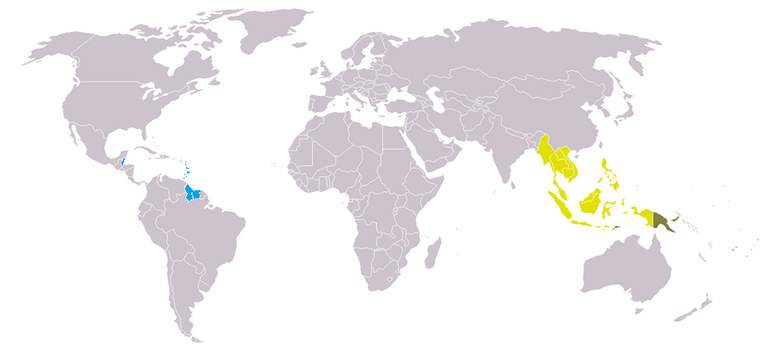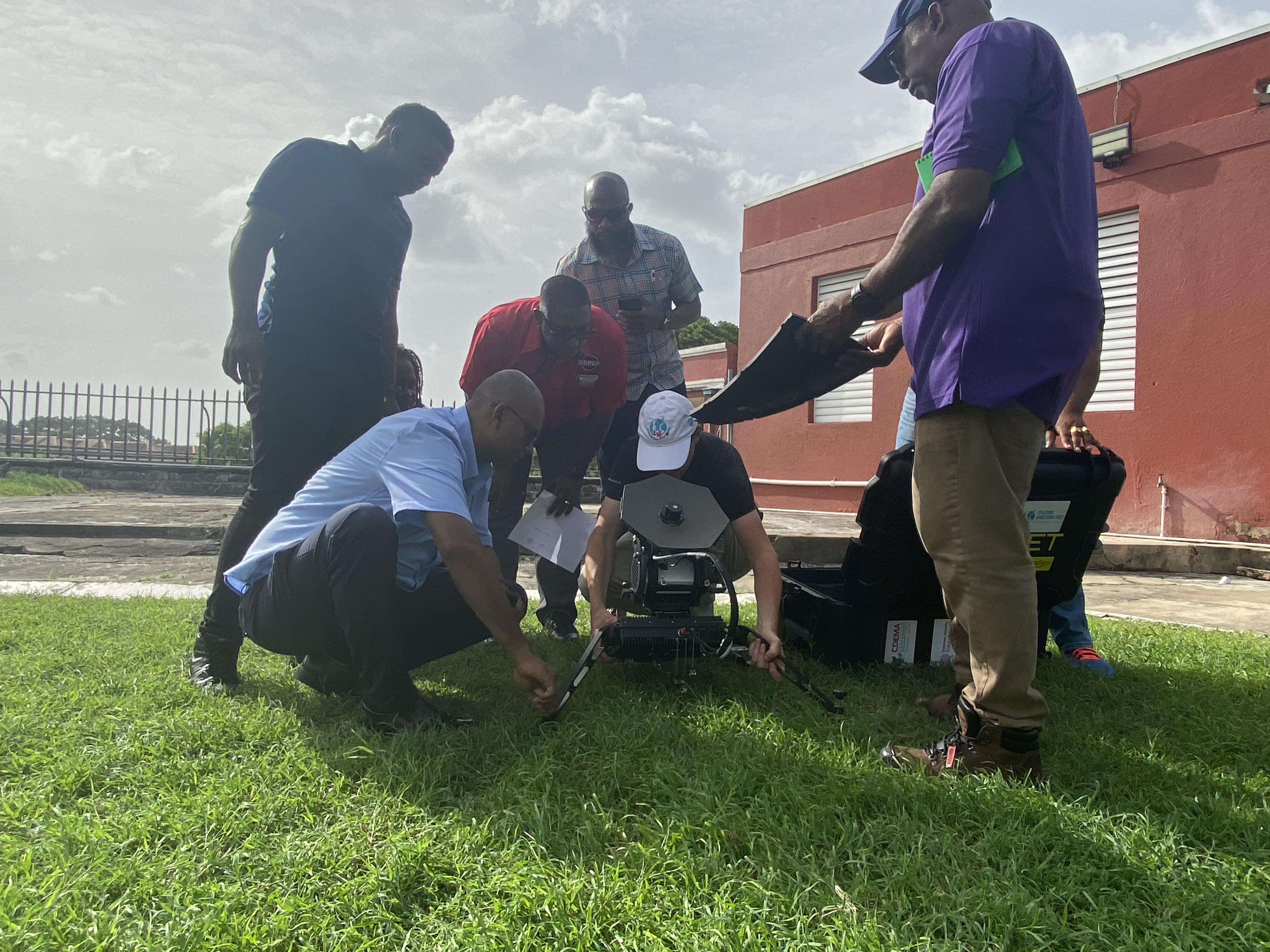Building regional emergency telecoms capacity
Context: Capacity Building
Start date: 18/10/2021
End date: 17/10/2023
Areas of intervention: South East Asia and the Caribbean
Activities:
- Capacity Building in key regional response areas
- Training of national and regional staff
Action financed by the Internet Society Foundation.
29 countries covered
2 intergovernmental organisations (CDEMA and ASEAN)
100% of satisfaction of participants after the training
Context
It is after a natural disaster, that the need for telecommunications is the greatest. However, communication means are often unavailable, disrupted or over-saturated, slowing down the ability to communicate, share information and assist affected communities. Through this project, TSF enhances the capacity of key emergency response players in the Caribbean and South-East Asia to support an even faster and more effective humanitarian action when disasters strike.

TSF’s resiliency project in the Caribbean and in South-East Asia.
Our mission
In communities prone to natural disasters, the capacity to provide emergency connectivity from the very first moments is crucial. Therefore, TSF mission is part of a global objective to contribute to the resilience of populations in the face of natural disasters through better preparation and a more tailored response. The main goal of this mission is to enhance emergency responders' autonomy in the face of natural disasters: learn more about our mission here.
Contributing to Preparedness
The project, supported by the Internet Society Foundation, aims to build preparedness in communities often affected by unforeseen emergencies.
Through a combination of theoretical and practical training, participants are given the opportunity to prepare for the possibility of a lack of communication after a natural disaster.
TSF is also providing equipment to the Coordinating Centre for Humanitarian Assistance on disaster management (AHA Centre) of the Association of Southeast Asian Nations (ASEAN) and to the Caribbean Disaster Emergency Management Agency (CDEMA) in the Caribbean region with emergency telecommunication kits. In addition to the kits, TSF also shares its expertise on the use, configuration and maintenance of the equipment during training sessions.
The simulation exercises (SIMEX) enable participants to work as a team and to actively learn and practice on real equipment, during realistic emergency scenarios. With the right equipment and knowledge, this can help officials recover as quickly as possible when a disaster hits.
Learn more on the importance of regional emergency telecoms training by watching our video.
Testimonies
"The hurricane season is just starting and anything can happen, and we will have to apply these skills at some point in the region.’’ - Curtis, a participant.
"In the field, when there is no communication nor data, telecoms become crucial for the coordination of the humanitarian response.’’ - A participant.
“We all know that natural disasters are becoming more and more catastrophic, with a considerable impact on already vulnerable communities. We believe it is our duty to make our technical expertise in emergency telecommunications available to the regional disaster response mechanisms. Strengthening their capacity means the possibility to save more lives and further improve the wider humanitarian coordination. For this reason, we welcome this opportunity and we look forward to collaborating with the Internet Society Foundation and all our partners to contribute to assist communities who cannot be left alone.” - Jean-François Cazenave, TSF President.
“This partnership is a great opportunity to work with the Internet Society Foundation to strengthen emergency response capacity in the Caribbean and South-East Asia, the two regions most prone to disasters. The kits will be designed based on the technological expertise and field experience acquired during more than 20 years by our emergency teams. And, most importantly we will share as much of our knowledge as possible and how to make the best use of the equipment so that local responders are equipped with all the tools necessary to a faster response” - Sébastien Latouille, Project Supervisor for South-East Asia.


















